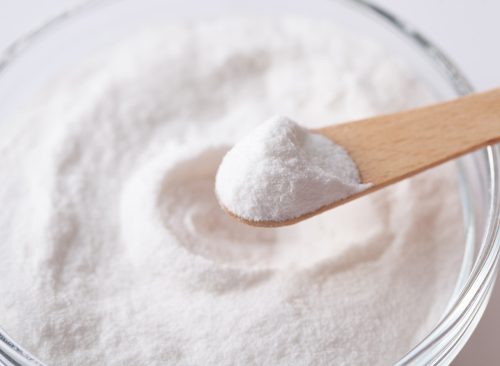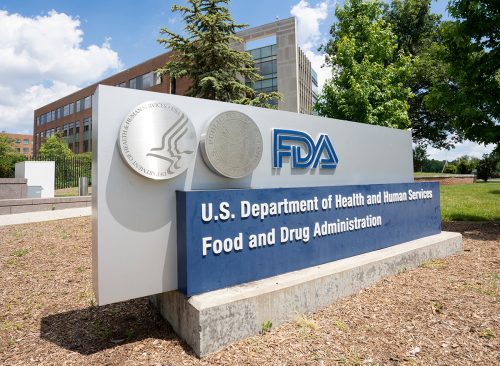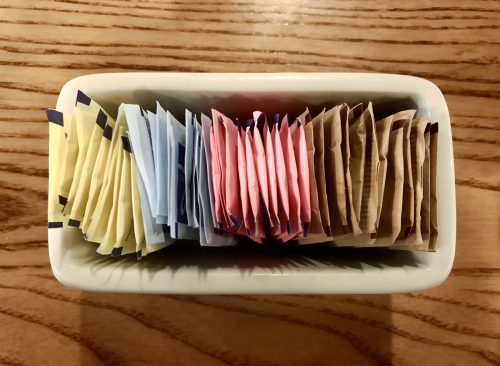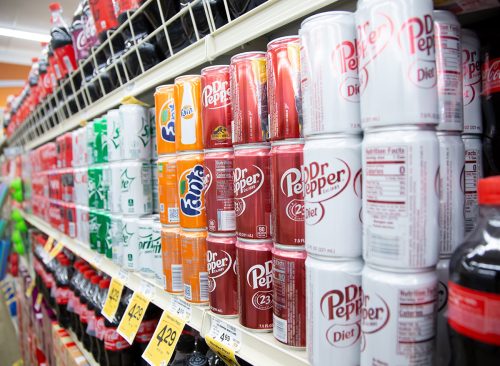Artificial Sweetener May Cause Cancer: 7 Things to Know
Experts are battling over the safety of aspartame, the most popular artificial sweetener.

The controversy surrounding artificial sweeteners is nothing new. Aspartame, the most common sweetener used in diet drinks and low-sugar foods, was first discovered in 1965 by James M. Schlatter and soon became a staple ingredient in the food industry. However, over the years, the zero-calorie sweetener has been highly controversial, with many health experts questioning its safety. Extensive testing has been conducted, and up until now, aspartame has been deemed safe for human consumption. This week the World Health Organization declared that it can possibly cause cancer, while another maintains it is safe. Here is what you need to know about the developing story.

International Agency for Research on Cancer, or IARC, a WHO agency, explains that aspartame is a possible carcinogen. They found limited evidence from three observational studies of humans linking the consumption of artificially sweetened beverages to an increase in cases of liver cancer.

They maintain that those who developed cancer drank levels far below a dozen cans a day. However, they did disclose results could potentially be skewed toward the profile of people who drink higher amounts of diet drinks and called for further study.

Dr. Francesco Branca, director of the W.H.O. Department of Nutrition and Food Safety, suggests that people who consume high amounts of aspartame should consider switching to water or other unsweetened drinks. “Our results do not indicate that occasional consumption should pose a risk to most,” he said.

However, the U.S. Food and Drug Administration disagrees with the findings and reiterates its longstanding position that the sweetener is safe. The group “disagrees with IARC’s conclusion that these studies support classifying aspartame as a possible carcinogen to humans,” they said in a statement.

They added that “aspartame being labeled by the WHO as ‘possibly carcinogenic to humans’ does not mean that aspartame is actually linked to cancer.”

The Joint Expert Committee on Food Additives also performed, claiming that the evidence for cancer in humans is “not convincing,” a WHO summary shows. “After a rigorous review, the World Health Organization finds aspartame is safe and ‘no sufficient reason to change the previously established acceptable daily intake,’” Kevin Keane, interim president of the American Beverage Association, says. “This strong conclusion reinforces the position of the F.D.A. and food safety agencies from more than 90 countries.”

The second WHO committee found that a safe level of aspartame consumption for a person weighing 150 pounds would be about one dozen cans of diet soda per day. The FDA says that a person weighing 132 pounds would need to consume 75 packets of aspartame sweetener to pose a potential risk.














